C-band launch makes Verizon a legitimate 5G threat to T-Mobile in the states

You might be familiar with a company called Ookla that is known for the Speedtest.net app. Available from the App Store or the Play Store, this app measures the download and upload speeds of your current data connection. If you're using a cellular connection (as opposed to Wi-Fi), you will also learn the location of the tower that your handset is connecting with.
Verizon and AT&T activate 5G spectrum in the C-band ranging from 3.7 to 4 GHz
Ookla says that millions of people use Speedtest daily in order to measure "the performance and quality of their internet connections." The data that is generated helps the company determine which carrier is delivering the fastest internet connections and can break this data down by geographic locations in the U.S.
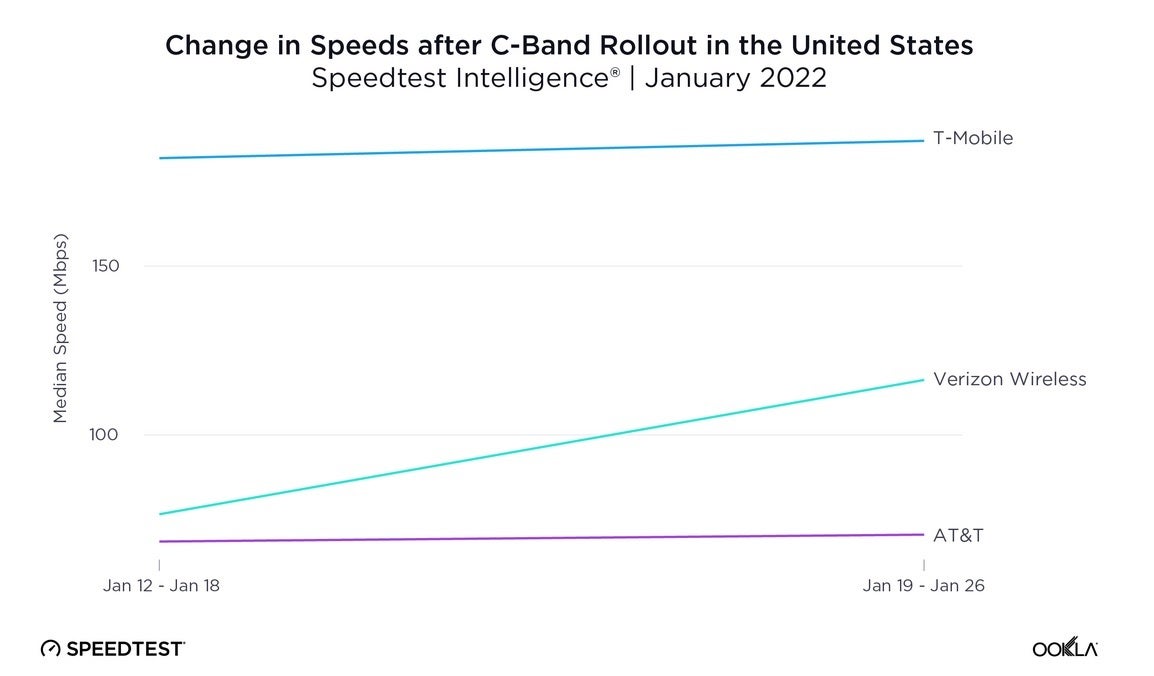
Turning on its C-band 5G spectrum made a huge improvement to Verizon's median download speeds
Recently, Verizon and AT&T started employing the C-band licenses they spent more than $68 billion for combined during an FCC auction. The spectrum they successfully bid for is in the range of 3.7-4 GHz which is considered mid-range. And mid-range 5G signals have the ability to travel farther than mmWave signals making them accessible to more people.
The mid-band spectrum also is not blocked by structures as mmWave is. While mmWave delivers extremely fast download data speed as fast as 1Gbps, C-band can provide users with download speeds in the neighborhood of 300Mbps. Turning on the C-band radios was delayed as both Verizon and AT&T had to battle with the FAA and the airlines over fears that the C-band 5G signals interfere with the altimeters on certain aircraft.
Not all C-band towers near airports are being used, but the amount still not turned on represents a small percentage (roughly 10%) of the total number of C-band towers that are now in use by Verizon and AT&T. And that is enough for Ookla to determine the impact that C-band has already had on the current 5G picture in the U.S. where T-Mobile is considered the current leader.
According to Ookla, 5G download data speeds in the states rose, on average, by 13% on a weekly basis for the week before and the week since the C-band radios were turned on. That includes the results from all carriers in the U.S. AT&T and T-Mobile reported slight median gains of 1% in 5G download data speeds.
Verizon could challenge T-Mobile to become the U.S. leader in mobile 5G
For AT&T, its median 5G download data speeds during these two weekly periods rose from 68.43 Mbps to 70.46 Mbps as it rolled out C-band 5G in eight markets. T-Mobile's median 5G download data speed rose during the same period increasing to 187.11 Mbps from 181.99 Mbps. T-Mobile didn't launch any new spectrum on January 19th but did debut its 5G carrier aggregation that same day which increases bandwidth and boosts mobile capacity.
As you might know, T-Mobile already has been employing the 2.5 GHz mid-band spectrum that it acquired from Sprint for its 5G services. When that deal closed in April 2020, T-Mobile picked up over 100 MHz of Sprint's 2.5 GHz mid-band spectrum in some of the most prime locations in the states. That gave the carrier a huge advantage over Verizon and T-Mobile.
The big winner from the C-band rollout was Verizon as the nation's largest carrier saw a huge 50% increase in 5G download data speed from the week before the January 19th launch to the week after the launch. The increase took Verizon's median 5G download speed from 76.51 Mbps to 116.29 Mbps. The widespread rollout enabled some Verizon customers to see the 5GUW (5G UltraWideband) icon appear on their phones' status bars for the very first time.
Ookla also noticed that a large number of Verizon customers used the Speedtest.net app to check their data speeds. Ookla did say that the large increase in Verizon's 5G download data speeds following the activation of C-band is a good example of why it usually likes to wait a full quarter before publishing a report.
Pointing to the huge increase in Verizon's 5G speeds made possible by the C-band launch, Ookla said, "However, if the trend in increased speed continues, Verizon Wireless could challenge T-Mobile for fastest download speed in our next Speedtest Global Index Market Analysis."
Follow us on Google News








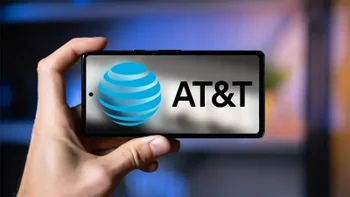
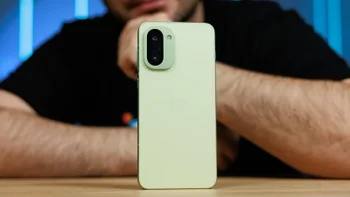

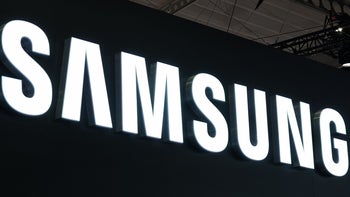
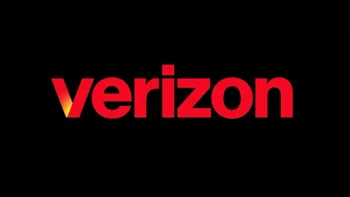
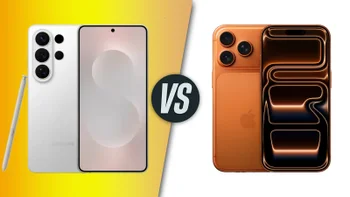
Things that are NOT allowed:
To help keep our community safe and free from spam, we apply temporary limits to newly created accounts: